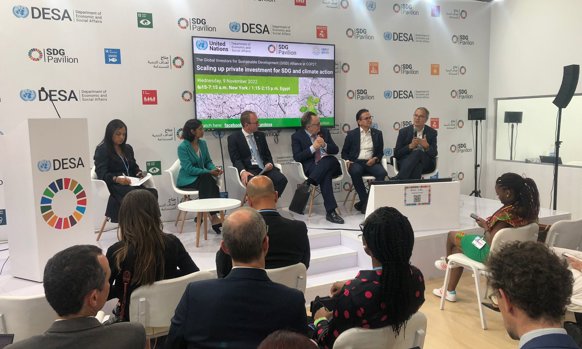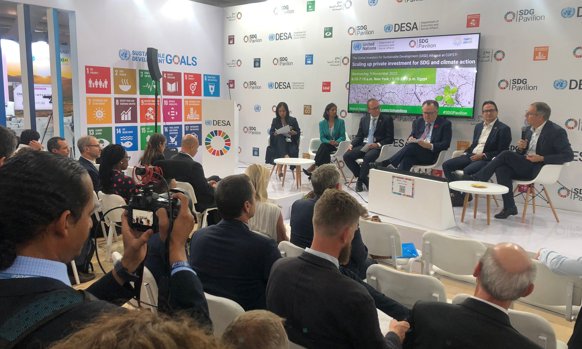Governments increasingly call on investors to contribute to the financing of sustainable development in emerging markets. APG’s pension fund clients want to contribute and have set targets for investments in the Sustainable Development Goals. To help them fulfil their ambitions, APG actively looks for Sustainable Development Investments (SDIs) and has launched the SDI Asset Owner Platform. In emerging markets, however, it can be challenging to find sustainable investment opportunities. Ronald Wuijster, CEO Asset Management at APG, calls on governments for help.
One of the challenges for investors is that there is often insufficient accurate and reliable information to assess whether companies are contributing to the SDGs. That is why APG joined forces with PGGM, AustralianSuper, and British Colombia Investment Management Corporation to establish the SDI Asset Owner Platform (SDI AOP) in 2020. The platform uses artificial intelligence to determine whether and how much companies contribute to the SDGs with their products and services.
In 2021, BlackRock – the world's largest asset manager – decided to use the platform’s data. The platform now represents over USD 10 trillion in assets under management. The SDI AOP is encouraging international investors to join the platform with the aim of making it a global standard for investing in the SDGs.
Finding investable SDI opportunities in emerging markets is challenging
Even with the data challenge being tackled, it can still be difficult to find investment opportunities in emerging markets which, ironically, offer most growth potential for sustainable development. Still, although availability is limited, we do see a trend of growing issuance of green bonds by different emerging market debt agencies. These bonds are earmarked to specific sustainable projects and/or have made their revenues conditional to achieving specific sustainable targets. We welcome this development, which is certainly of interest to us.
Another way of financing sustainable development is through private debt originated by Development Finance Institutions. We like this instrument, because it allows us to finance specific individual projects on the ground or to target specific regions, sectors or SDGs on behalf of our clients. However, the scalability we need is not always available. Also, these loans are buy-and-hold. That is not necessarily a problem as we are in it for the long term, but our clients may change their preferences over time and may ask for a change in the investment portfolio. More flexibility would help to allocate more capital to this investment category.

